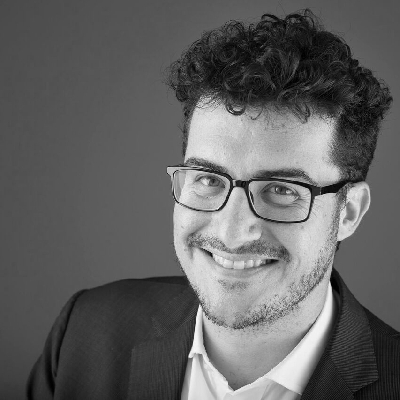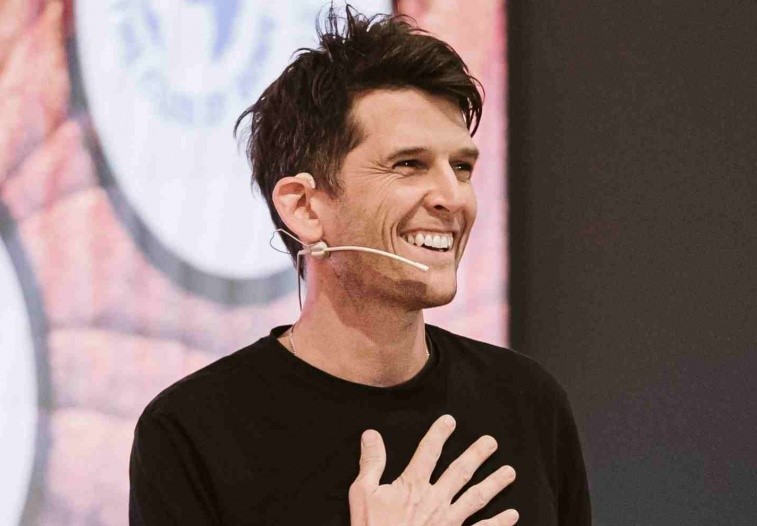Harald Friedl is one of the most known European advocates for the circular economy. Activist, action-accelerator, thought leader, entrepreneur, mentor, and advisor, Harald is always there when radical disruptive ideas emerge.
He has been the CEO of Circle Economy from 2017 to 2020, an impact organization of then 80 people based out of Amsterdam, and the co-founder of Impact Hub Myanmar. A seasoned consultant, he is one of the most active promoters of circular innovation, works as a circular economy accelerator for the Austrian Government, and is part of the COP 27 High-Level Climate Action Champion’s Team - and offers advice all around the globe. He is also an old friend and reader of Renewable Matter. We sat with him for a 360° chat over circular services.
Harald, what is the pulse of the European circular economy?
Many people argue that the drive towards sustainability and a circular economy has been postponed and put on the back burner, due to the Ukraine war and the shifting economic reality. At the same time, people are starting to understand that the circular economy is not something separate we are adding on top of the economy, but that it has been at the core of a future vision of a sustainable, circular, and regenerative system. That’s needed to allow us to have a future of prosperity all together. Because the clock is ticking - we see accelerated global destruction of ecosystems, and weather patterns are changing. And at the same moment - I'm optimistic. I think the deep road to change for more material independence is now - with the Ukrainian war a higher necessity - than ever. The system is ready for change - and we need more leadership.
People are starting to feel that in a complex situation, we can’t aim for short-term solutions - we need to think long-term and bring all stakeholders along.
Give us some examples.
On the policy side, interesting examples are that a Swiss region includes the circular economy in the constitution or that a Dutch city is banning meat ads in public spaces. Also, fascinating are reports that countries with women leaders have fared better than those led by men during the COVID crisis. I believe a new style of holistic servant leadership - in our countries, cities and companies is the way to forge a better future for all.
However, there are so many alarms for the medium term.
I choose to stay optimistic. Sure, science tells us that we have 7 or 8 years left to make deep rooted dramatic changes in our economy to avoid climate chaos. We need to listen to that and shape a net-zero emission economy by 2050 - asap. Also - as important - is a stronger focus on empowering ourselves and how we can be agents of change. Really interesting are all the developments around the world around conscious communities and DAOs - decentralized autonomous organization (DAO) as systems that are based on distributed decision-making, ownership and management. There is more happening than many are aware of. We need to understand that better and unleash the power that new technologies are unleashing.
What is the expertise that we need to boost the circular economy transition? What do you think are the most needed experts today?
I don't think it is so much the technical expertise that is missing - the urgent need is to strengthen abilities that enable the acceleration of the transition. And for sure - we need to update curricula at schools and universities - to make sure the new generations are being taught the skills that we actually need to build a clean future. Expertise-wise we have to focus on strengthening capacity along 4 pillars: First, you need people who are system accelerators, people who make that happen. People who have content knowledge and can drive multi-stakeholder collaboration - ideal on country and regional levels.
Secondly, we need to create “safe spots” for an honest conversation about systems change. It needs to be in a safe trusted space where public and private come together, where they can recognize each other’s responsibility and with a vision able to solve the systemic problem. This can be done by acknowledging the problems and finding solutions on the policy and economic sides. Furthermore, we must enhance the circle of trust in the circular economy, just as we brought the whole textiles chain together to have an honest conversation with each other on the whole supply chain. The process was difficult, also because of competition laws, but once recyclers, producers, clients and investors came together the right solutions emerge, fundamentally to put trusted places of change.
Thirdly, we need expertise on the policy level. That said, we are willing to shape it together with the industry sectors to ensure that ambition is locked, solved and unleashed.
Fourth, we must get the financial world aligned. I think there is an emerging understanding on the financial front that looking at short-term returns will not solve any issue. Signals from the CEOs of BlackRock are leading the way and are of utmost importance.
Let’s focus on financial services. Can you bring some interesting examples and data?
Let’s just look at the news in the last months and what is actually happening: Polestar Capital announcing the launch of the biggest circular economy fund in Europe; HSBC or Black Rock starting a circular economy investment fund; one of the early adopters in the space - the Circular Innovation Fund - announcing new investors - or the Dutch financial sector presenting a roadmap to the circular economy earlier this year. These are really positive signals. Good money with the right intention is ready to be deployed. Our priority task in my mind has to be to continue changing the policy environment to make circularity a real business case.
What is the role of incubators and accelerators as a service for the circular economy?
The role of the accelerators is to integrate and build a bridge between the private and the public sectors. I have been working in the Austrian accelerator, an initiative that came from the government, in partnership with the minister of Climate Change and Circular Economy. From my role I can see three main things: first, there is a big appetite to do more. Industries in any country, from any sector, are thinking about how to redefine their business for the future and are starting to think in a circular way. Secondly, what we are observing is that even the big corporations realize they can't do it by themselves. Which is humbling but also encouraging for the way forward. They are looking to engage both with startups, and policymakers to make changes happen. The third concept is a shout-out, the request for immediate action. I think it's reassuring that you see opportunities popping up everywhere for circular enterprises. However, it would be even more encouraging if this road will align with the climate change roadmap. Together with the governments and industry, we need to build closely coordinated climate and circular economy roadmaps and action plans - to unleash the ambition loop between government policy foresight and creation and the necessary economic action.
Can governments play a role in fostering innovation?
Governments need to create roadmaps that can bring security to the industries about where the journey is going. The industry sector will only implement changes as far as the policy environment gives clear signals. Sure, we see some incredible front runners that drive change, like the founder of Patagonia, Yvon Chouinard, but these are outstanding examples that don't happen very often. The reality of businesses is that they are limited by the space of their financial investors, by the stock markets, and by regulations.
Again, we need vision and trust - and the inclusion of all different voices. Recently at a conference, I invited ministers, government representatives, the Austrian leading CEOs, and one of the spokespeople of Fridays for Future, a young, fresh face that expressed what a transformed economy means for youth. The result was that they were inspired and all of them underlined the necessity to achieve such transformation.
My focus was on getting this vision clear for the Country. I believe that when we will have that picture clear, the action pathways become more explicit. Furthermore, we must start avoiding free riding in our society’s liberal values. This is something that needs to stop.
What is the role of evangelists, educators, and advocates in the circular transition, being yourself one of the most known?
Somebody called me last time a “circular economy cheerleader”. My focus is on enabling people to act. That is an essential role - for all who are doing this. I give you an example: I was speaking to a European political leader and she told me “Thank you for talking to me because I've got stuck into limiting beliefs. I forgot about the vision”. I think our political system is not set up to support strong visions, to think about a positive future or enable people to achieve the best out of each other.
Consequently, we need more people, more newspapers and more communication platforms to help disseminate knowledge and values. Someone who is listened to, who has thousands of followers on different platforms, has a great responsibility in generating quality content. Social media, as well, will hopefully focus more on content - that’s why I recently started a Tik Tok channel. These are important go-to and anchor pints in a world where people are losing sight of what matters, but, thankfully, there is a rising appetite for these voices.
What can you say to inspire more thinkers to lead?
I think there's nothing more beautiful to do than trying to contribute to the overall well-being of the world. I truly believe that. Indeed, being in a system, in whatever role and following a sort of servant leadership model for the betterment of our society is very fulfilling. It gives me a lot of calmness and sense of purpose.
I do believe, however, that in the sustainability and circular economy, we don't have enough good communicators. It's really an issue because the message is complex and there aren’t enough people coming forward and sharing how they feel. I strongly feel that the term “sustainability” has been abused too much. Too much whitewashing has happened. People don’t trust it any more. We need to make sure that is not happening with the concepts of circular economy & regeneration - that shall shape our actions in the 2020s. We need responsible communication on all levels - more than ever.
Do we need more technological R&D and innovation framework?
The European Union with the Green Deal has pumped so much money into this. What is lacking is clarity and guidance. Today it seems to me that the innovation world is still going where the wind blows. What's a bit missing is the clarity of where big investments are really needed - prioritize them and ensure they happen. There is still a lack of masterplans, especially at the regional or national level. This comes back to - political - forward-looking leadership, and good communication. Even if risk capital has become more cautious due to the current crises; money is out there. It needs guidance and clear intention. The global Climate Negotiations in and around COP 27 are another chance for the sector to communicate its alignment and commitments - and show determined action. I am truly optimistic - as people in all parts of the system are standing up and doing more of what’s truly needed: lead from a place of humbleness towards inclusion, a just transition and prosperity for all.
Image: Mika Baumeister (Unsplash)
Download and read the Renewable Matter issue #42 on Services for the Circular Economy.



